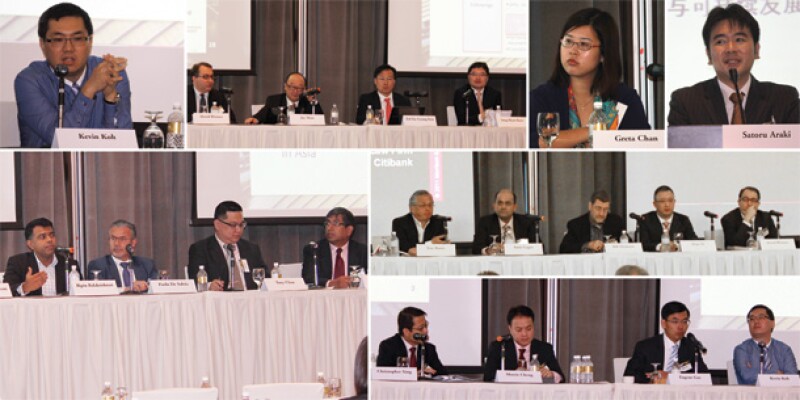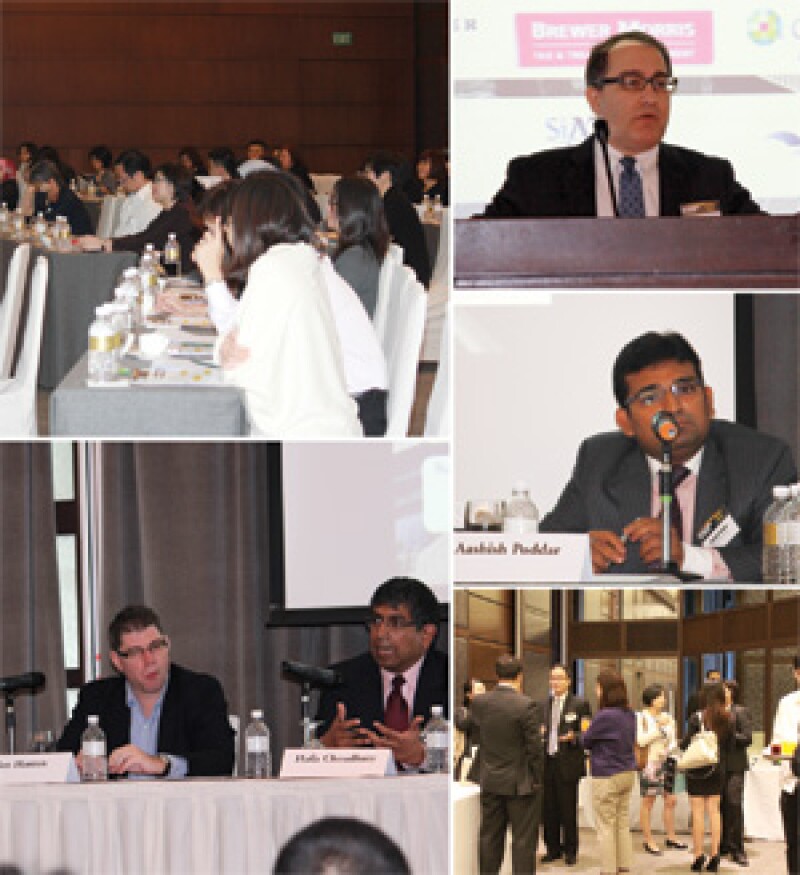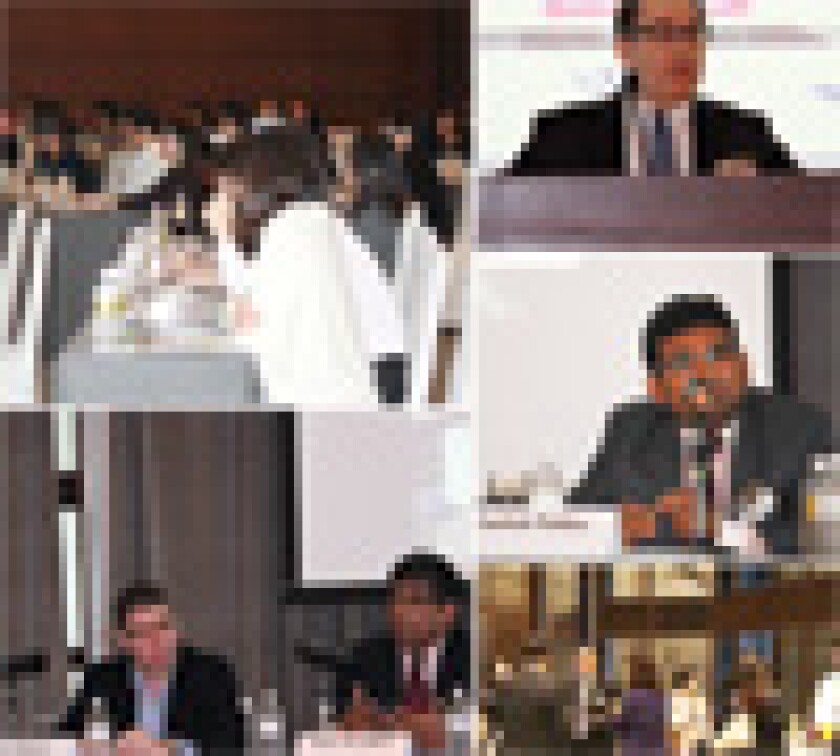
Taxpayers in Asia appear to have adopted a curious mixture of apprehension and relaxation about the G20 / OECD BEPS project.
Delegates at International Tax Review's Asia Tax Forum in Singapore believe international tax rules will change, but they were unwilling to speculate by how much and at what level.
One senior tax director does not think the project will achieve unanimous agreement on all 15 points in the BEPS action plan, which covers topics such as the digital economy, hybrid mismatches, treaty abuse, transfer pricing documentation and country-by-country reporting. "Some countries will agree on some things, some will do their own thing and some will do very little," he said. "Get ready for some rough seas for years to come."
Another said all discussions about BEPS will not end suddenly in December 2015, the deadline for recommendations about all the action points. "This is only the start of the beginning," he said.
Only four jurisdictions in Asia are members of the OECD – Australia, Japan, Korea and New Zealand – and the first three, along with China, India and Indonesia, are members of the G20. Even still, the interest in the BEPS project was high at the conference and the topic came up in almost every session, even when it was not supposed to be down for discussion.
Keen interest
For example, in the first session of the conference, on hot topics in Asia in 2014 and 2015, delegates heard that BEPS action points eight to 10 were aimed at ensuring that transfer pricing outcomes are in line with value creation; panellists at the China and Hong Kong session were told that BEPS should not stop taxpayers from doing planning within the boundaries of international tax rules as they exist now; the international tax developments panel, which covered the initiative in detail, heard a discussion about the actions jurisdictions such as Australia and Korea have taken to BEPS-type avoidance situations and the session on dispute resolution and anti-avoidance heard that tax officials are using BEPS as an anti-avoidance tool.
The hot topics panel, chaired by Eric Roose of Morrison & Foerster, and also featuring Bill Thomson of TimeWarner, Amit Gupta of Dell, David Weisner of Citibank and Peter Ni of Zhong Lun Law Firm, discussed issues such as the general anti-avoidance rule in India, which is being introduced in 2015, Chinese rules on reorganisations and permanent establishment, and the role of intergovernmental agreements in the implementation of the US' Foreign Account Tax Compliance Act.
India was also on the agenda of the transfer pricing panel. The country has about 200 mutual agreement procedure (MAP) agreements pending with the US. The panel, made up of Pradeep Dinodia of MGI India, Aashish Poddar of Piramal Enterprises, Sam Sim of Standard Chartered Bank, Andrea Tolley of Schneider Electric and Dickson Leung of MGI China, concluded that there will be more transfer pricing litigation in Asia because taxpayers will try to test the calibre of the tax authorities.
China VAT spells fundamental change
Lachlan Wolfers of KPMG in China explained that the new VAT reforms in that country will fundamentally change who bears transaction tax in China from businesses to customers.
Wolfers added that the three hardest sectors for VAT – financial services and insurance; real estate and construction, and telecommunications – were yet to be moved over to the new system. They are the hardest, Wolfers said, because of the significant macroeconomic effects of the change: real estate and construction accounted for more than 50% of the receipts from the old Business Tax system.
The indirect taxes panel heard from Yvonne Beh of Wong & Partners, Baker & McKenzie's partner in Malaysia, who ran through some of the uncertainties that still exist about the introduction of goods and services tax (GST) in Malaysia in 2015. These uncertainties include which types of supplies will be non-taxable, exempt or zero-rated. This panel also discussed the workload that is still ahead in India before it can introduce a national VAT system.
Jay Shim of Lee & Ko told the session on Korea that tax audits were frequent and aggressive there because of a budget shortfall. He said tax officials often wanted to see non-tax information. He urged taxpayers to cooperate but to be tactical at the same time.
Get your facts right
Michael Olesnicky of Baker & McKenzie advised taxpayers to ensure they were clear about why they were doing a transaction and had the documentation to prove it. He said they should do this because they may have to defend what they did in court in years to come, so they need to have their facts together. This point came up during the dispute resolution and anti-avoidance discussion. This panel, which also consisted of Vineet Rachh of Jabil Circuit, Subhankar Sinha of Siemens, and Eugene Lim and Allen Tan of Baker & McKenzie in Singapore also discussed the AQQ case in Singapore, which found that a financing arrangement was a tax avoidance arrangement under the territory's anti-avoidance provisions.

Subhankar Sinha was also a member of the India panel, along with Jeenendra Bhandari of MGI India. The panel took place before the results of the general election, which swept Narendra Modi and his BJP party to power, were announced. A budget is due to be tabled in parliament in July 2014. In the panellists' view the new government is unlikely to retain the Tax Administration Reforms Commission, which, under the chairmanship of Partho Shome, has been looking at different ways to improve the efficiency of the tax system. The new government is committed to introducing the GST, but will probably have a rethink about the Direct Taxes Code, a new version of which was unveiled in March this year. April 1 2016 is the next possible date for the introduction of GST.
More for less
The panel on tips for effective tax department management brought the conference to a close. Bipin Balakrishnan of Transocean, Tony Chan, of the SapuraKencana group, Paolo De Salvia, of the Noble Group and Hafiz Choudhury, senior adviser of the International Tax and Investment Centre in Washington, DC, told delegates that everyone has a view about tax now, including business colleagues. Corporate reputation has always been important, they agreed, but only recently has tax become recognised as something that could affect it. Demands on time and resources are increasing all the time, they said, which came as no surprise to any tax manager in the room.
The Asia Tax Forum took place at the Goodwood Park hotel in Singapore on May 7 and 8. It was supported by the Asia chapter of Tax Executives' Institute, the Tax Academy of Singapore, the Singapore Institute of Accredited Tax Professionals and the International Tax and Investment Centre. Sponsors were Morrison & Foerster, MGI, KPMG, Lee & Ko, Baker & McKenzie, S&P Capital IQ, Brewer Morris, CCH and Qatar Financial Centre.










